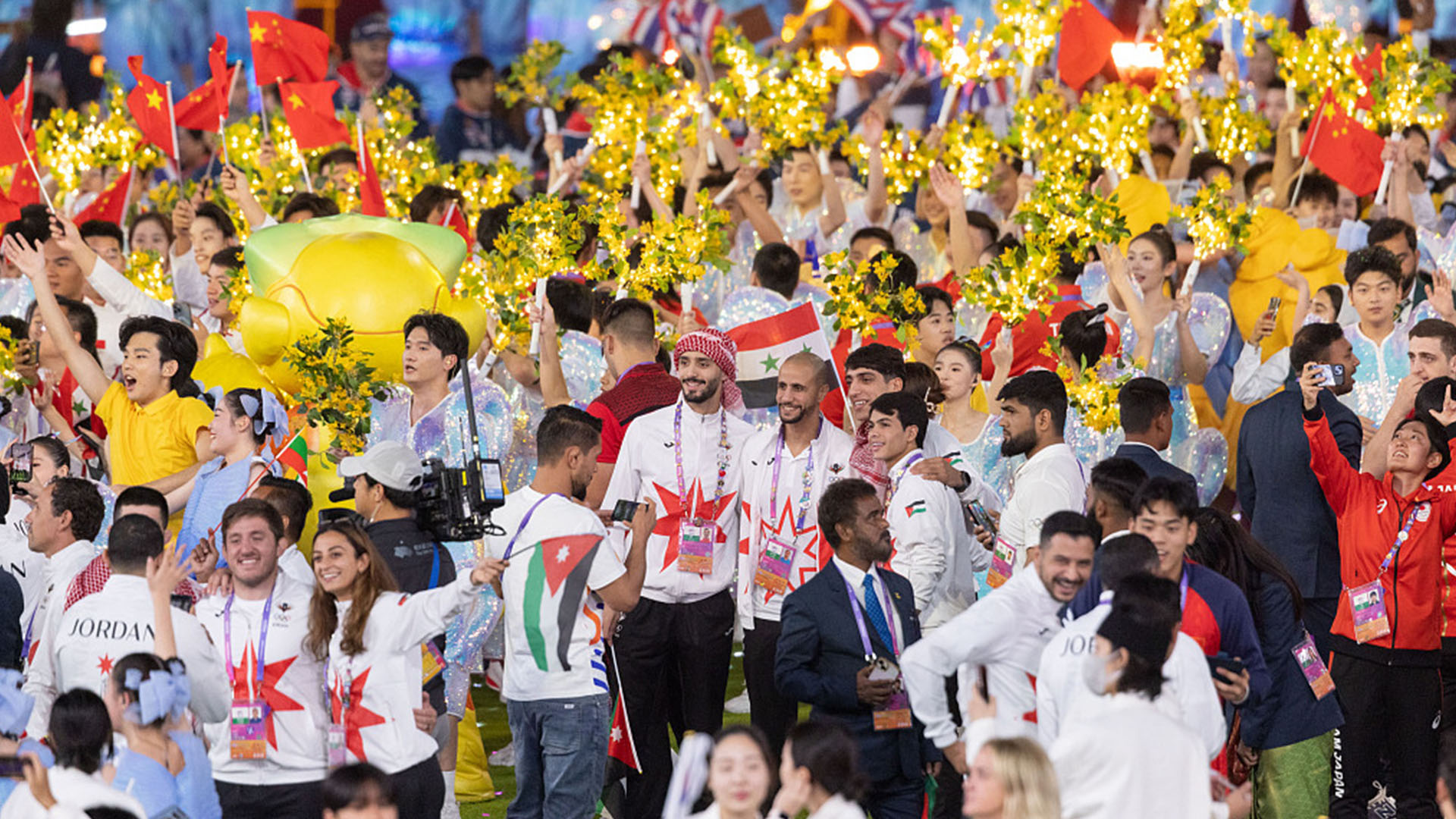When yaji grips Asia: Demystifying Asia through cultural encounters
Yaji, or literati gathering, were where ancient Chinese literati used to mingle and converse about art, improvise and recite poems–with perhaps the most famous one being the Orchid Pavilion Gathering organized by great calligrapher Wang Xizhi in the year 353. Throughout history, yaji proved to be one of the most beloved activities for literati, calligraphers and painters in China. To mark the occasion of the 19th Asian Games, young people from around Asia are gathering together in the host city of Hangzhou to absorb its rich history and diverse culture, and to be inspired by one another at an international yaji.
Host Julian Waghann is joined by two special guests, Melody Tan, a Malaysian singer and associate professor at Guangxi University of Foreign Languages, and Taihi Chin, a Japanese violinist and trainee concertmaster at the Sichuan Symphony Orchestra. Together, the three hosts take viewers on a cultural expedition through Hangzhou to explore the similarities and differences between Asian countries, and to revel in the surprises and excitement of the cultural encounters that take place along the way. The 30-minute show features dynamic discussions and performances by young talents from China, Japan, South Korea, India, Tajikistan, Malaysia, Thailand, Vietnam, Myanmar, Laos, Indonesia and Mongolia. By way of such art forms as music, dance, calligraphy, seal engraving, painting, and tea ceremonies, these young people from around Asia highlight the unique charm of their home countries against the backdrop of the Asian Games.
Calligraphy, painting and seal engraving showcase Chinese aesthetics
At the Xiling Seal Art Society, Julian, Melody and Taihi meet Wang Zhen, a seal engraver and member of the Xiling Seal Art Society, who shares with them the art of seal engraving. Under his guidance, Yoshimi Komiyama, a Japanese doctoral student from the School of Calligraphy at the China Academy of Art, and Kang Dayeon, a student of Chinese painting at the China Academy of Art from South Korea, together complete an Asian Games-themed Chinese painting of poetry and calligraphy. While Taihi works in tandem with Yoshimi on the work of poetry-calligraphy in Chinese, Julian completes the ensemble with a calligraphic dedication to "Hangzhou" in English, stamped by Melody with the special seal "Yaji: Asia unveiled" engraved by Wang Zhen. The art of Chinese seal engraving, a UNESCO Intangible Cultural Heritage, is truly the capstone of this artistic collaboration exemplifying the athletic spirit of the Asian Games and Chinese aesthetics.
The fragrance of tea gathers friends from all over Asia
Tea originated in China and spread to other Asian countries and the rest of the world. Over the millennia, unique tea cultures developed around this popular beverage in various parts of Asia, and soon became deeply intertwined with everyday life, and local rituals and ceremonies. At the China National Tea Museum in Hangzhou, the three intrepid explorers discover a wealth of information about the history and tea culture of countries from around the globe, including Malaysia and Japan. Host Julian invites two friends – Mustakim from Tajikistan and Sharon Hannah from India – to help complete their assignment. Mustakim shows off his mastery of the ancient Chinese art of dian cha, while the entourage savors and delves deep into the diverse and fascinating tea traditions from different parts of Asia.
Breakdancing breaks with tradition as an Olympic sport
The special program not only displays traditional culture but also showcases the vitality of modernity. While taking a stroll across the historic Gongchen Bridge on Hangzhou's Grand Canal, host Julian encounters a group of B-boys. For those dancers, breakdancing is a passion as much as it is an attitude towards life. In 2020, the International Olympic Committee included breakdancing as an official sport of the 2024 Paris Olympics. In the same year, the Olympic Council of Asia also included breakdancing as a new competitive event at the Hangzhou Asian Games. Perhaps inspired by, or maybe as a toast to this milestone embracing a break with tradition, the B-boys injected their Chinese backgrounds into their dance routines. They surprised Julian by demonstrating elements of the four arts of the Chinese scholar and Wing Chun into their dance numbers, irrefutably challenging the Olympic motto of "faster, higher, stronger" through their creativity.
To round off "Yaji: Asia unveiled," international students from the China Conservatory of Music perform “Dance of the Yao People,” playing such traditional instruments as the gayageum, guzheng, guqin, zhongruan, erhu, and gaohu. Once a trading hub on the ancient Silk Road, the performers unveil Hangzhou's former glory, unmatched beauty and unparalleled embrace of cultures from near and far, step-by-step, and turn by turn – much like a Chinese garden, made all the more verdant by the youth of today. Here, they are unbound by place or time, yet they remain bound together by the common language of tomorrow.
-
Xi's Thought on Culture put forward
October 9, 2023
-
Li highlights need to boost digital economy
October 10, 2023
-
Xi declares Hangzhou Asian Games open
September 23, 2023



